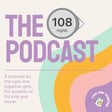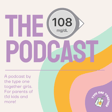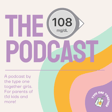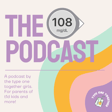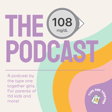Speaker
Diabetes world. I forget if I, yeah, I'm not sure if I've like updated on the podcast. The fact that San Diego Unified is starting a pilot study at my daughter's elementary school. I've talked about it a lot. So if you're like, oh my gosh, shut up. Sorry. They officially got the iPad in the health office on Halloween, which was really cool. And they set it up and I went in because I was already volunteering at the school for something separate. And I went into the health office and I kind of like sat down and, you know, looked at it with them and they were like, okay, so the low alarm is set to a hundred, but the orders now state like there's even newer orders. I'm going to actually backtrack for a second. I think that there was some serious, there's always been miscommunication, but there was serious miscommunication between myself and the nursing staff at my daughter's elementary school when it came to them trying to explain the types of orders that I should and could have if I wanted the ability to call and request the extra doses be given or request the different amounts of low saves be given. And so I made these super hyper specific addendum orders that I had submitted mid-September. And that is the thing that got the ball rolling where they were like, no, we refuse to follow these. We have to talk to your daughter's doctor about these. These are so complicated, blah, blah, blah. And I felt really frustrated. Like you freaking told me to write those. If you're going to tell me that like California Ed Code Law says I'm not allowed to call you and tell you to please give her an extra juice box, which is wild to me. Like that's, I'm not asking you to give her freaking a cancer drug, like give her an extra juice box if I see the need for it. And, you know, so I really felt stuck. Like you're telling me I can't do that. And then you tell me to write certain orders so that I can do that so that legally and within their licenses they're able to. And then you say no to those things. Like, the heck am I supposed to do? And I think the reality for it or of, like, that whole situation was I wanted orders that were so hyper-specific if the nursing staff and the health tech were going to have no idea what her blood sugar numbers were. Because if in my brain, I'm like, if you have no idea what they are and you don't know the trends, I have to be able to call in and tell you something hyper-specific, right? But now that they have the iPad in the health office, my new addendum orders that I sent in are so much more clear and simple. There's only like five unique orders for my daughter. And one of them, the biggest one is if blood sugar is between 70 and a hundred with a single or double arrow down, may treat with five to 20 grams of carbs. That is essentially what I have wanted all along. But when they did not have access to her numbers and the trends, putting that addendum order out there felt like it was futile. It wasn't going to do anything because they would not know. And it's like, I didn't want her phone to be alarming on her person under a hundred because sometimes she has really beautiful days where she sits at 80 for an hour and a half. That's unfair to her. It's unfair to her teachers. It's unfair to her classmates. And so now that the iPad is in the health office, that order set specifically relieves any and all anxiety surrounding this. Because I was able to explain to them, I was like, okay, this is awesome, but you see how she's 90 and it's in red right now, but it's a right arrow. So I was like, I'm really nervous that you guys are going to have alarm fatigue and not love this pilot program. And they were like, oh, well, we're really comfortable with if we notice that she's super flat at 90 or 85, lowering the alarm limit by five or 10 so that when it alarms, it's more actionable. And I was like, okay, that's great. So baseline is 100. Once she goes under 100, then you make the determination if you're adjusting the alarm limit or if you're gonna give her a low snack, right? And it just all feels like common sense. And I don't know, I feel better. Yeah, seriously. Well, I'm just really hoping that they kind of have that moment too of just being like, oh, duh, we should have done this months ago and this makes so much sense and hopefully it's just easier on everyone and more importantly, or I guess in addition, you have a great relationship with them going forward and it's not as tough in that way too. Yeah. I would love to move forward and I hope that little by little they realize that I'm normal and not psycho and you know, like I, I can't imagine dealing with, cause there is a special type of parent that's like, Oh my God, you know, I roll. I get it. And if I was going to have to be that parent, then so be it. But I'm not typically that parent. I'm a very like rational, reasonable person. I like to think fairly easy to get along. Yeah, it's like, I'm like, I would love to have a good relationship, but can you first and foremost keep my kid safe and then we can have a good relationship? Yeah. It's not too much to ask. The whole thing is just so unbelievable, but you're making so much real change and you're inspiring other people to try to create change, which is really cool to see too. Hoping. Yeah. We need to figure out how to hurry this pilot study along and then figure out who rewrites policy, how it's rewritten, and kind of force that change sooner rather than later. Because at the walk yesterday, we were talking to some parents who like one mom was saying she's in the same school district as we are. And she was saying that she is 100% responsible for monitoring all numbers and calling in for anything and everything. And it's like, I've seen that argument from some people in the comments of some of our videos that I've made about this. And I'm like, is that realistic? That's not realistic. Like people have jobs and they have things to do. Yes, of course I'm watching the numbers too, but I have meetings or like diabetes is so unpredictable that in the eight minutes it takes me to like move laundry over and start a new load. It's very possible that she was super flat at 90 and suddenly she's at 65. Like, yeah, you know, I don't, it's such an interesting conversation. And I think I was telling you yesterday that I did this TikTok video where I was asking people like, do you allow others? I was asking adults, obviously. Do you allow other people to follow your Dexcom? And I let my mom and a friend and my boyfriend follow me. And that not only in my opinion makes me feel better, but also makes them feel better because they worry about me. But it was really interesting to see the response in the comments of people just being so adamant that they will never, ever let anyone follow them. But there were a lot of different reasons. Some people just didn't want other people to worry about them. Other people, I think, felt insecure about their numbers and didn't want to share that at all. And then there's this idea that this is my thing. It's no one else's responsibility ever. So of course, I'm going to take on that burden forever and be the only one to ever manage it. And I think there's a little crossover in that thought with what some parents feel with their kids too. And I get that side as well. I don't ever want to burden anyone with it, but you're not burdening anyone. You're supposed to have this time as a mom while your child is at school and you have the right to that opportunity like other parents. But I think some parents do feel like, well, yeah, it's my kid. It's their diabetes. I can't put any of this on the school. But it's not even about putting it on them because you are watching all the time. I know you are still. It's about keeping her safe. I mean, to that point specifically, this is why my whole argument, Danny, my husband was laughing at me the other day because he was like, I wasn't going to say it. I was going to wait for you to say it. My whole argument this whole time has been public school is our only option and not really, but like it is going to be the only option that we pursue because public school has public funding for nurses and health techs. And so we are sending our child to a school that has a subset of paid people whose sole job it is to take care of the health and wellness of the children, you know? And so I don't feel any guilt or anything because it's like they are paid to take care of the health of the kids. Yeah. And so at preschool, when there was no nurse, no health tech, no nothing, yeah, I had a bit of guilt there. And so I was always at the ready for, I can come pick her up. It's a really hard day. I'm so sorry that it's been three days in a row of dropping. And they were so much more like, please stop. We've got it. It's okay. Her preschool teacher last year was like, I want more than anything for you to have three hours where you do not have to look at her numbers a single time. And it's just interesting to me that that human who has no nursing background and isn't a health tech and isn't paid to do this extra thing and also is in charge of 20 other four-year-olds. Yeah. Took it on to that degree. And then, yeah, I think that's why it was just such a shock to the system. But the reason why Danny made fun of me is like my whole thing this whole time has been, you know, we're not doing private school because we want the access to the public education system that has a publicly funded school nurse. We need the high quality nursing care for diabetes and we can't just like go to a private school or some other type of like educational entity and like hope that those people choose to take it seriously. And meanwhile, this has been the fight. And he was like, I wasn't going to say anything, babe. But man, that really bit you in the ass on your 40s. Well, yeah, we don't need to get all into this. But I think a lot of private schools do have really great nurses, which is why a lot of people, including my family, chose to send me there too, right? But you have to find the ones that have great nurses. You have to find them. And then on top of that, it's like, what if just in your area, the public schools that exist that are affordable don't have nurses? Because a lot of them don't. Right. So it's like either way you go, there's that chance. Yes. And then one of the ones who have great nurses are the ones that are like basically college tuition, which flat out we just can't afford public or private school regardless. Like that's just, it was the end all be all. We can't afford it. But. Oh my God. It's insane what some of those are charging now. It's really wild. I know. Like literally like $40,000 I've seen. It's painful. It's so painful. Anyway, that was a tangent. Okay, you go. What's your update on life and diabetes? I'm so happy that there is some positive updates there.

